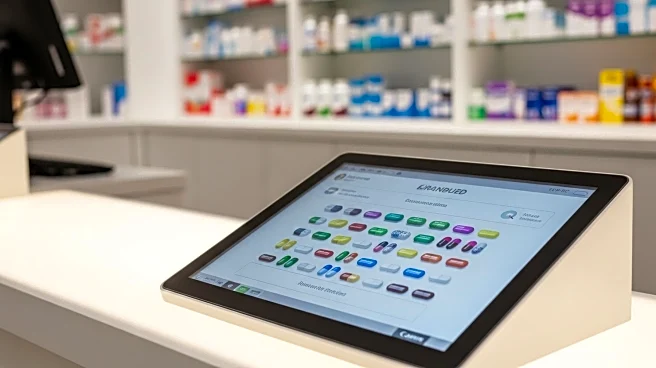What is the story about?
What's Happening?
The pharmaceutical industry is responding to pressure from the Trump administration to lower drug prices by launching a new platform that connects patients directly with drug manufacturers. This initiative comes as President Trump has urged drug companies to align their prices with international standards, a policy known as 'most favored nation' pricing. The Pharmaceutical Research and Manufacturers of America (PhRMA) has introduced a website called America's Medicines, which aims to facilitate direct-to-consumer sales of medications. This move is part of a broader effort by the industry to demonstrate compliance with the administration's demands for reduced drug costs. Additionally, the industry is facing challenges related to the potential expiration of Affordable Care Act tax credits, which could lead to significant revenue losses for hospitals and other healthcare providers.
Why It's Important?
The launch of the direct drug purchase platform is significant as it represents a shift in how medications are distributed and priced in the U.S. healthcare system. By bypassing traditional intermediaries like pharmacy benefit managers, the initiative could potentially lower costs for consumers. However, the feasibility of achieving substantial price reductions remains uncertain, especially given the complexities of the pharmaceutical supply chain. The expiration of ACA tax credits poses a threat to healthcare coverage for millions of Americans, which could lead to increased uncompensated care costs for hospitals and a reduction in industry revenue. The Trump administration's push for price alignment with international standards could also impact the pharmaceutical industry's investment strategies and manufacturing decisions.
What's Next?
As the deadline set by President Trump for drug companies to propose pricing solutions approaches, further announcements from the administration are expected. The industry is likely to continue negotiating with the government on Medicare pricing as part of the Inflation Reduction Act. Additionally, the potential government shutdown could affect healthcare operations, including Medicare payments and disease monitoring. The industry will need to navigate these challenges while maintaining its commitments to domestic investments and innovation.
Beyond the Headlines
The broader implications of these developments include potential shifts in the pharmaceutical industry's business models and investment strategies. The emphasis on direct-to-consumer sales could lead to increased transparency in drug pricing, but it also raises questions about the role of traditional intermediaries in the healthcare system. The industry's response to government pressure highlights the ongoing debate over drug pricing and healthcare policy in the U.S., with significant impacts on patients, providers, and policymakers.
















